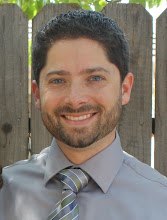Many scientists (including some Christian ones) argue that introducing God or a “designer” as a valid scientific explanation will be a “science stopper” – that it will stifle research or produce only trivial “god of the gaps” (or what Dawkins calls “incredulity”) type of answers. I think this view is flawed, and would like to offer some initial thoughts along these lines.
First, I believe it is important to point out some historical facts. It is now widely recognized that modern science developed in the West – and not anywhere else – because of the unique Judeo-Christian understanding of the world. In this view nature was not deified (as in animistic or pantheistic religions) nor held to be necessary (as in Greek thought), but rather considered contingent and good because it was created by a transcendent God. So not only was it able to be studied, but that was understood in the early days of modern science as a Christian responsibility. Note here that a) belief in the actual design of nature was present and b) it was more of a science-starter than a science-stopper. If belief in design gave rise to scientific inquiry, belief in design cannot be sufficient to end scientific inquiry.
Second, it is important to clarify that ID does not necessitate that every biological structure be designed. Adaptation to environment is readily acknowledged by design theorists, and there would be many cases where pursuit of a naturalistic explanation would be totally appropriate even given design as a valid option. It would only be those cases in which the structures, objects or events in question met the strict criteria of specified complexity that ruled out non-design explanations in principle, that naturalistic explanations would be abandoned.
However, even this wouldn’t mean the end of scientific inquiry in these cases. A forensic pathologist doesn’t stop examining a dead body once it has been determined that the cause of death was murder (design) – there is still the question of how it happened. Scientific inquiry in other fields (such as forensics) is almost always stimulated by the detection of design, and there’s absolutely no reason why the same thing wouldn’t happen in physics, cosmology or biology. Moreover, there is no actual sociological evidence of actual cases of design theorists stopping their scientific endeavors. In fact, there are contemporary examples of research programs investigating aspects of design. Should design be granted scientific status with equal opportunity for research, you would see rigorous science being done to explore this new avenue of scientific inquiry.
What about producing trivial “God of the gaps” types of answers? The purpose of science should be to give us accurate knowledge about the world as it is. This type of fallacy happens when an extraordinary explanation is given when an ordinary one suffices. If, however, it can be shown that it is impossible in principle for an ordinary explanation to work, then the ordinary would not suffice, and the scientifically responsible thing would be to investigate the extraordinary explanation. Moreover, the charge of incredulity misunderstands the design argument – it’s not that a naturalistic explanation in these limited cases is possible but unknown; it’s that a naturalistic explanation is not possible even in principle. This whole objection hinges on a presupposed naturalism; but such a stance is not logically implied by the empirical data and is not arrived at via some scientific process. It is a philosophical commitment that then colors how we see things. Science existed without naturalism before and it can exist without it again.
